- Home
- Janet Evanovich
The Shell Game
The Shell Game Read online
BY JANET EVANOVICH
The Fox and O’Hare Novels with Lee Goldberg
The Heist
The Chase
The Job
The Stephanie Plum Novels
One for the Money
Two for the Dough
Three to Get Deadly
Four to Score
High Five
Hot Six
Seven Up
Hard Eight
To the Nines
Ten Big Ones
Eleven on Top
Twelve Sharp
Lean Mean Thirteen
Fearless Fourteen
Finger Lickin’ Fifteen
Sizzling Sixteen
Smokin’ Seventeen
Explosive Eighteen
Notorious Nineteen
Takedown Twenty
Top Secret Twenty-One
The Between the Numbers Stories
Visions of Sugar Plums
Plum Lovin’
Plum Lucky
Plum Spooky
The Lizzy and Diesel Novels
Wicked Appetite
Wicked Business
The Alexandra Barnaby Novels
Metro Girl
Motor Mouth
Troublemaker (graphic novel)
Nonfiction
How I Write
The Shell Game is a work of fiction. Names, characters, places, and incidents either are the product of the authors’ imaginations or are used fictitiously. Any resemblance to actual persons, living or dead, events, or locales is entirely coincidental.
A Bantam Books eBook Original
Copyright © 2014 by The Gus Group LLC
All rights reserved.
Published in the United States by Bantam Books, an imprint of Random House, a division of Random House LLC, a Penguin Random House Company, New York.
BANTAM BOOKS and the HOUSE colophon are registered trademarks of Random House LLC.
eBook ISBN 978-0-8041-8081-8
Cover design: Carlos Beltrán
Cover photograph: Claudio Marinesco
www.bantamdell.com
v3.1
Contents
Cover
Other Books by This Author
Title Page
Copyright
First Page
About the Authors
Garson Klepper liked going to black-tie events. Wearing a tuxedo made him feel suave and debonair. It made no difference that he looked like Homer Simpson, and made his living manufacturing fish meal for cattle. He always walked in as if he was the most important person in the ballroom, which he usually was. His sizable donation, made possible by his fish meal fortune, often made whatever charity event he was attending possible. Like the night’s soiree at the Cleveland Ritz-Carlton.
Klepper wasn’t sure what calamity he was raising money for tonight. War, famine, homelessness, illiteracy. It didn’t matter to Klepper. He wrote the checks for the tax deductions and attended the events because he could always count on leaving with a smoking-hot twenty-something gold digger on his arm.
He was walking away from the bar with a lemon drop martini in each hand, one for him and one for the lucky gold digger at his table, when a man crossed his path, cutting him off.
The man was in his early thirties, with impeccably cut, casually styled brown hair and a warm smile. He wore his custom-tailored tuxedo with a devil-may-care savoir faire that Klepper wished he could manage for himself.
“Excuse me, Mr. Klepper,” the man said. “I just have to tell you how impressed I am by your generous donation.”
“It’s a horrible tragedy when a kid steps on a land mine,” Klepper said. When he saw the confusion on the man’s face, he quickly added, “Especially if he has a cleft palate.”
“Or suffers from malnutrition,” the man said, “like the children we’re raising money for tonight.”
“Exactly. I’m just doing my small part to make the world a better place.” And if it got him laid, even better. That wouldn’t happen if he didn’t get back to the gold digger, a platinum blonde in a gold lamé halter-top evening dress that left nothing to the imagination. Klepper tried to edge past the guy, who cut him off again.
“I’m sure that’s also why you share your amazing collection of Peruvian antiquities with the public at the Cleveland Museum of Art.”
Klepper did his philanthropic work to gain prestige. The kind of prestige he couldn’t get from making food for cows that were destined to become Big Macs. But he wasn’t stupid. He knew this guy was sucking up to him for a reason.
“Let’s skip the ass-kissing, shall we?” Klepper said. “Who are you and what do you want?”
He was Nicolas Fox, international con man and thief, and what he wanted was to clean Klepper out.
Fox smiled at Klepper and gave him a small nod of approval for his bluntness. “My name is John Drake. I’m with Intertect Security. We understand you’re lending your entire collection of Peruvian artifacts to the Getty in Los Angeles. We’d like to make sure your collection gets there safely.”
“I’ve already got people for that.”
“They aren’t up to the task. The artifacts were looted from sacred tombs. The Peruvian government would love to get their treasures back. This move from Cleveland to L.A. is the perfect opportunity. You’re going to need world-class security.”
“I’m covered. The company I’m using hires ex-soldiers, ex-cops, and ex-spies who know every trick,” Klepper said. “They put the same cutting-edge alarm system in my house that’s in the Louvre. Nothing gets past these guys. I think they can handle a simple delivery.”
“You’re probably right. But if you change your mind, I gave your friend my card.”
Nick gestured to Klepper’s table, where the gold digger was sitting.
Klepper looked over at the woman and had a moment of confusion before he fully realized what he was seeing. She’d had long, straight unadorned blond hair when he left the table, and she was now wearing a crescent-shaped headdress of elaborately hammered gold. Klepper recognized the headdress. It was a one-of-a-kind treasure worth millions of dollars, and it had been looted from a royal crypt inside a pyramid in Peru. Until this very instant, Klepper thought the headdress was safely locked in a vault in his mansion, protected by an impassable alarm system, constant video surveillance, and armed guards on patrol. But this guy had managed to steal it without even wrinkling his tux. It was frightening. And damn impressive.
Klepper took a big slurp from one of his lemon drop martinis and turned to Nick.
“You’re hired.”
FBI Special Agent Kate O’Hare was slumped in her chair in her cubicle on the fifteenth floor of the Wilshire Federal Building in West Los Angeles. She had thick auburn hair pulled back into a ponytail, and blue eyes that were glazed over in stupefied boredom. She wore a sensible navy Ann Taylor blazer over skinny tan slacks and a stretchy white T-shirt. The blazer nicely covered the Glock on her hip. A pile of bulging files sat on one side of her computer monitor, and a dozen Oreos were stacked like poker chips on the other.
Her cubicle was five feet wide, five feet deep, and framed on three sides by five-foot-high partitions that doubled as bulletin boards. She was sure that federal prisoners would be delighted to know their cells were roomier than the offices of the agents who’d arrested them. Not that she’d put anyone away yet.
Kate was twenty-eight years old and had graduated from the FBI Academy in Quantico just six months earlier. So far she’d only been assigned basic fieldwork, such as running background checks and interviewing witnesses on cases other agents were investigating. She was currently wading through low-level clearance applications, and when she felt herself nodding off, she snapped herself back with an Oreo.
&
nbsp; “I bet that’s better than eating bugs,” said Cosmo Uno, popping up on the other side of the partition like a hyperactive mole.
Uno was 5′4″ and had to stand on a file box to peer over at her. His voice had the same pitch as a squealing smoke alarm, and when he started talking, almost nothing could stop him.
“I heard that when you were a Navy commando you were dropped into the Nicaragua rain forest and had to live on beetles and rainwater for two weeks while tracking drug smugglers,” Uno said. “Is that why you quit and joined the FBI? I don’t think I could eat a bug unless it was a Squiggly-Wiggly, which aren’t really bugs but jelly candy shaped like bugs. Have you ever had a Squiggly-Wiggly? Do they taste like bugs? I bet bugs are more crunchy than chewy, but you tell me.”
He rested his chin on the top of the partition, waiting for an answer.
Kate would have gladly spent a week in the rain forest, munching on beetles, rather than endure another minute in a cubicle beside Special Agent Cosmo Uno.
“Go away,” she said. “I’m busy on a very important case.”
She stared at her computer and pretended to be enthralled by someone’s job application for a State Department janitorial position.
“Is it true you’re trained to kill a man using any object within reach?” Uno asked. “I can see how you could kill me with those scissors or a pen, but could you kill me with a file folder? With an Oreo? With one of those Dr. Scholl’s inserts in your shoes? Is that how you got blood on your shirt?”
Kate glanced at her shirt. Sure enough, there was a red stain on her chest.
“It’s barbecue sauce,” Kate said.
“That’s what happens when you eat McNuggets for lunch. I told you not to eat McNuggets. Who really knows what’s in a McNugget? Could you kill me with a McNugget?”
“I don’t know,” she said, “but I’m willing to try.”
Something caught Uno’s attention. He lifted his head to look past her, gave a gasp, and abruptly dropped behind the partition. Kate turned to see Carl Jessup, the special agent in charge, striding toward them on his way to his office. He was a lanky, weather-beaten Kentuckian in his fifties who looked like he’d be more comfortable on a horse.
She bolted up from her seat and covered the stain on her shirt with her hand.
“May I have a word with you, sir?”
“Of course,” he said. “How are you settling in?”
“To be honest, I’ve been doing background checks for so long I feel like I’m a personnel director and not a special agent.”
“Security clearances are important work, Kate.”
“I know that, sir, and I mean no disrespect, but isn’t it time to put my FBI training and military experience to use on a real case? I’m ready and I promise I won’t let you down.”
He glanced at her hand on her chest. “It’s not necessary to take a pledge.”
She dropped her hand. “I was hiding a stain on my shirt.”
“Relax. Stains are okay. They give you character.”
“I don’t want to be a character. I want to be the best special agent you’ve got.”
“I know you do. I haven’t forgotten about you. I’m just waiting for the right case to come along.”
Nicolas Fox was heading north on the 405 in a rented Mustang convertible at precisely fifty-five miles per hour. The soft top was down, Randy Newman’s “I Love L.A.” played on the speakers, and the wind whipped Fox’s hair. He wore Ray-Bans and a charcoal gray Tom Ford suit with a bright white shirt open at the collar. There was a Bluetooth mike in his ear, allowing him to make hands-free calls. He looked like a young Hollywood agent on his way to close a big deal, and that wasn’t too far off the mark.
“I’m approaching the Marina Freeway overpass,” Fox said to the three people he was conferenced into via his cellphone.
He clicked his stopwatch. The Jefferson Boulevard ramp onto the 405 freeway was a quarter mile away, which was about sixteen seconds. The timing was very important. It was the first of three consecutive on-ramps feeding into the northbound 405 from the Marina Freeway interchange.
Nick drove underneath the overpass and, as he emerged into the sunlight again, he glanced to his right where a blue Toyota Camry raced down the Jefferson on-ramp. The car was driven by an Asian woman in her thirties, wearing a straw porkpie hat and big sunglasses. She yawned at Nick and merged into the traffic behind him. He glanced at the stopwatch. Sixteen seconds. Perfect. He clicked the stopwatch again.
“Right on time,” Nick said.
“This is so boring,” the Asian woman said.
Her name was Wendy Rhee, and she was the best getaway driver in Seoul, maybe in all of Asia. Now she was ready to conquer America.
“It’s no fun driving if someone isn’t chasing you,” Wendy said. “Cars need gasoline, and I need adrenaline. I’m tempted to rear-end someone and speed away just to stay awake.”
“You have eight seconds, Artie,” Nick said as he approached the on-ramp where traffic from the westbound Marina Freeway funneled cars onto the northbound 405.
“Out of my way!” Artie Sondel yelled in his thick Bronx accent, not at Nick but at the car in front of him. “You’re driving a car, not sitting on the can.”
Artie leaned on his horn. Nick looked to his right and saw the silver Ford Explorer Artie was driving. It was stuck on the on-ramp behind two slow-moving cars.
Artie swore, veered onto the weedy embankment, and sped past the two cars with his Explorer tipped at a precarious angle. It was typical Artie. He’d spent twenty years driving a taxi in Manhattan, so he was an expert at urban guerilla driving.
Nick looked ahead. The on-ramp channeling the eastbound Marina Freeway traffic to the northbound 405 was coming up almost immediately. Evaristo Suarez’s black Lincoln Town Car was in sight, and Nick didn’t have to use the stopwatch to know Evaristo was going to hit his mark to the split second. Evaristo had learned to drive in the U.S. Army, transporting arms and supplies through Iraq on roads mined with improvised explosive devices. Precision timing and hair-trigger reflexes had kept him alive. The problem was, when he came back stateside, nothing else gave him the same thrill as driving those land-mined roads … except crime.
As Nick passed the on-ramp, the Lincoln merged into place behind him and in front of Wendy’s Camry. Artie’s SUV was two cars behind her. Nick led them off the 405 at the Wilshire Boulevard exit, turned right onto Wilshire, and then into the parking lot of the Federal Building. They parked side by side, got out of their cars, and gathered around Nick’s Mustang to talk.
Evaristo had a buzz cut and wore GI-issue desert cammies. Muscular and fit, he was a sharp contrast to the pudgy Artie, who wore an untucked aloha shirt for comfort and because he thought it hid his bulging belly. Wendy was small and dressed in a pink miniskirt, reminding Nick of a Hello Kitty doll come to life.
“Not bad for the first go-round,” Nick said, “but I want you all to keep practicing. We don’t have much time to get it right.”
“Two of us got it perfect,” Wendy said and hooked a thumb at Artie. “He’s the one who didn’t.”
“It could just as easily have been you who got stuck behind those two altacockers,” Artie said.
“Don’t nobody get a big head, because that’s what’ll get you killed,” Evaristo said. “Boom. You’re meat and applesauce.”
Wendy grimaced. “That’s gross.”
“That’s life,” Evaristo said. “People die.”
“Nobody is going to die on this job,” Nick said. “I have a strict no-bloodshed policy. We aren’t going to be carrying any loaded weapons.”
“The other guys will be,” Artie said.
“We aren’t going to give them any reason to use their guns. That’s why it’s important you keep practicing.” Nick nodded toward the Federal Building, which looked like an enormous tombstone with windows. “I’ve got to go. I have an important meeting.”
“You’re walking into the lion’s den,” Wendy said.
Nick shrugged into his suit jacket. “It’s the best way to know what all the lions are thinking. Klepper panicked the Getty, and the Getty asked for the FBI’s assistance. I need to know their plans, so I’m going to be a helpful team member.
Kate was working at erasing her shirt stain with a Tide to Go stick when her phone rang. It was Jessup, summoning her to his corner office.
“I have a case for you,” he said.
Kate hung up and did a fist pump. “Yes!”
Cosmo popped up on the other side of the partition. “What?”
“I got a case.”
“Does that mean you aren’t going to eat any more of those cookies?”
“It means I’m going to put them in my top drawer and save them for later. And I’ve counted them so don’t get any ideas.”
Kate put the Tide stick away and hurried across the long cubicle-crammed bull pen to Jessup’s office.
He was sitting behind his desk, and the view behind him was incredible. To the west, she could see the Santa Monica high-rises and the Pacific Ocean. To the northwest, she could see the 405 freeway snaking through Sepulveda Pass below the hilltop Getty museum.
“Thank you, sir, for this opportunity,” she said, practically standing at attention in front of his desk. “I won’t let you down.”
Jessup slid a file across the desk to her. “A fifty-million-dollar collection of golden Peruvian antiquities is being loaned to the Getty.” Jessup aimed his thumb over his shoulder at the marble-clad museum on the hill behind him. “It arrives at LAX on Monday and I want you riding shotgun on the delivery.”
“Not to sound unappreciative, because I really, really do appreciate getting this case,” Kate said. “But what makes this FBI business?”
“That’s a good question. The antiquities were looted from Peruvian tombs in the late 1980s and sold to Garson Klepper, a collector in Cleveland. An archaeologist specializing in Peruvian antiquities saw the golden masks on display in Cleveland a few years ago, recognized them as coming from the Sipán tomb, and reported it to the FBI. We confiscated the artifacts and arrested Klepper, who admitted they were stolen, but said they were taken from another tomb elsewhere in Peru. It was a very cunning maneuver on his part. Under the National Stolen Property Act, establishing the site where a piece is taken is the key requirement for making a case for possession of stolen artifacts. Unfortunately, neither the Justice Department nor the Peruvian government could prove which site the antiquities actually came from. So the judge ruled we had to return it all to Klepper. He got away with the crime. The Peruvians were furious, and we got egg on our face. We can’t take the risk that the antiquities will be stolen, that would just add insult to injury. So you’re going to make sure that doesn’t happen.”

 Full Scoop
Full Scoop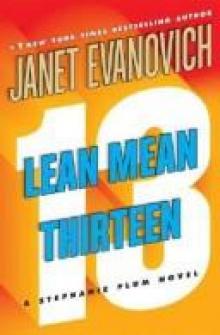 Lean Mean Thirteen
Lean Mean Thirteen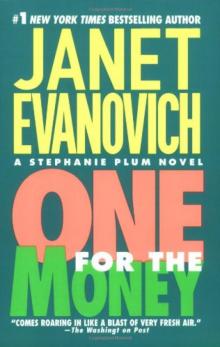 One for the Money
One for the Money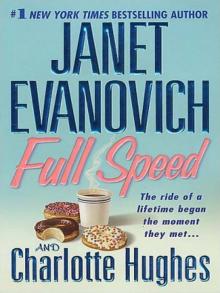 Full Speed
Full Speed Top Secret Twenty-One
Top Secret Twenty-One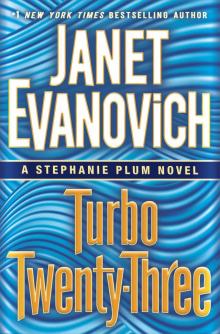 Turbo Twenty-Three
Turbo Twenty-Three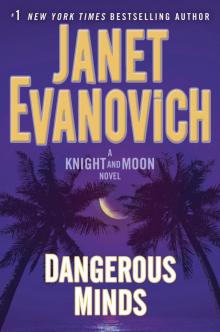 Dangerous Minds
Dangerous Minds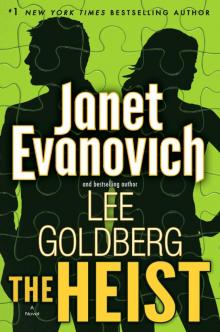 The Heist
The Heist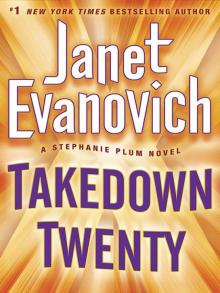 Takedown Twenty
Takedown Twenty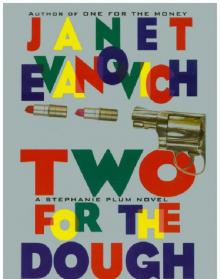 Two for the Dough
Two for the Dough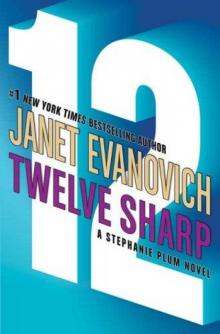 Twelve Sharp
Twelve Sharp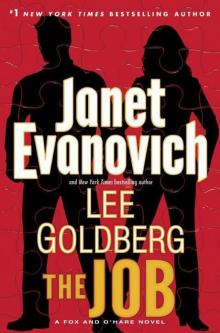 The Job
The Job Metro Girl
Metro Girl Full House
Full House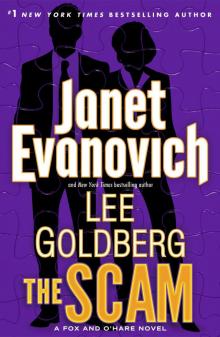 The Scam
The Scam Hot Stuff
Hot Stuff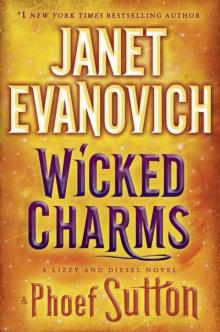 Wicked Charms
Wicked Charms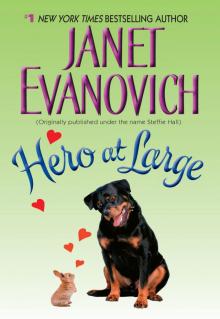 Hero at Large
Hero at Large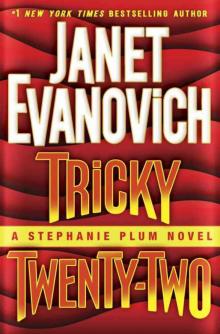 Tricky Twenty-Two
Tricky Twenty-Two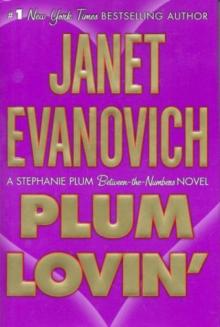 Plum Lovin'
Plum Lovin'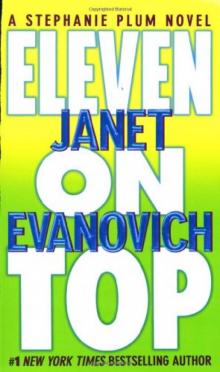 Eleven on Top
Eleven on Top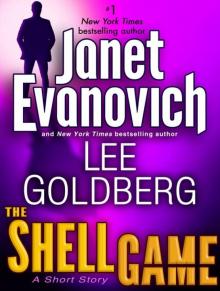 The Shell Game
The Shell Game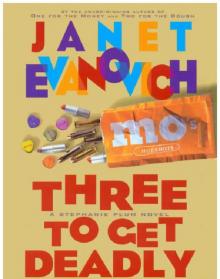 Three to Get Deadly
Three to Get Deadly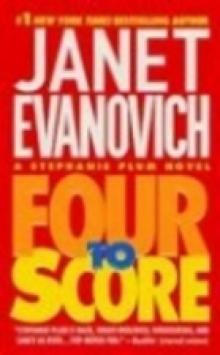 Four to Score
Four to Score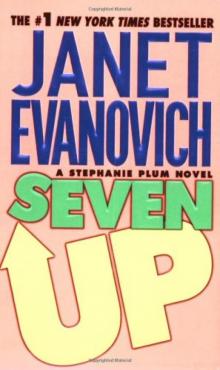 Seven Up
Seven Up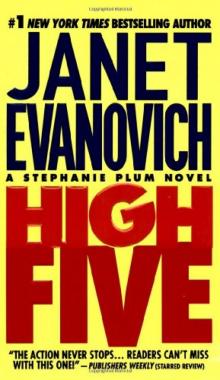 High Five
High Five Hot Six
Hot Six The Grand Finale
The Grand Finale Hard Eight
Hard Eight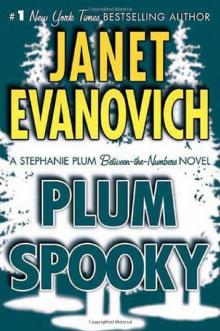 Plum Spooky
Plum Spooky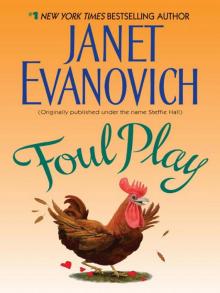 Foul Play
Foul Play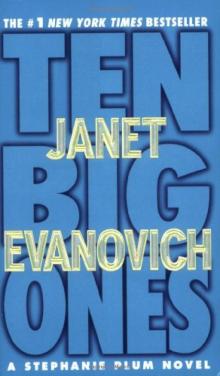 Ten Big Ones
Ten Big Ones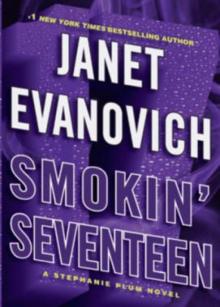 Smokin' Seventeen
Smokin' Seventeen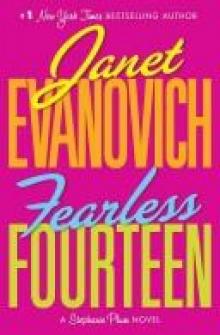 Fearless Fourteen
Fearless Fourteen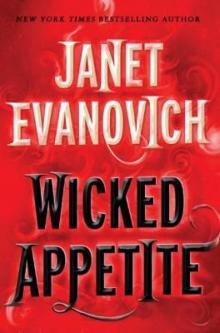 Wicked Appetite
Wicked Appetite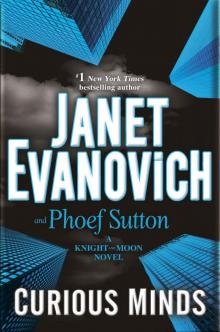 Curious Minds
Curious Minds Sizzling Sixteen
Sizzling Sixteen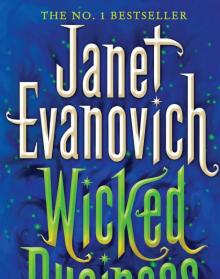 Wicked Business
Wicked Business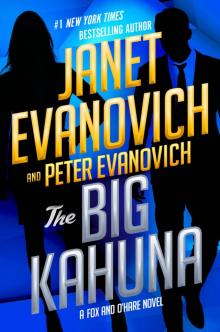 The Big Kahuna
The Big Kahuna Explosive Eighteen
Explosive Eighteen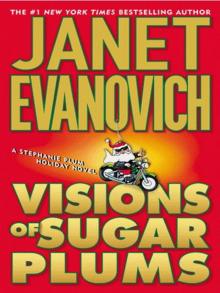 Visions of Sugar Plums
Visions of Sugar Plums Full Blast
Full Blast Back to the Bedroom
Back to the Bedroom Finger Lickin' Fifteen
Finger Lickin' Fifteen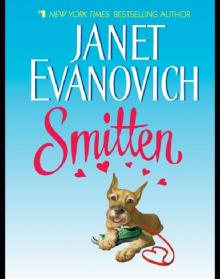 Smitten
Smitten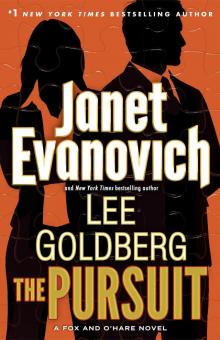 The Pursuit
The Pursuit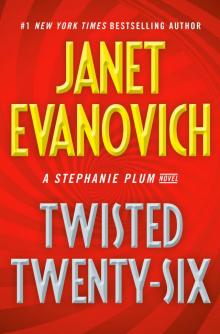 Twisted Twenty-Six
Twisted Twenty-Six Love in a Nutshell
Love in a Nutshell The Chase
The Chase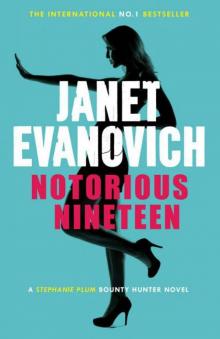 Notorious Nineteen
Notorious Nineteen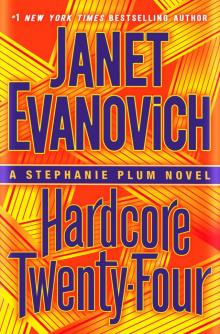 Hardcore Twenty-Four
Hardcore Twenty-Four The Rocky Road to Romance
The Rocky Road to Romance Twisted Twenty-Six (Stephanie Plum 26)
Twisted Twenty-Six (Stephanie Plum 26) Manhunt
Manhunt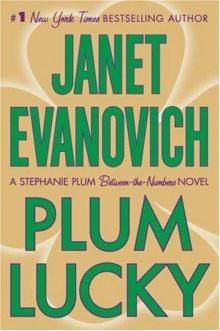 Plum Lucky
Plum Lucky Full Bloom
Full Bloom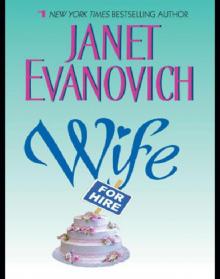 Wife for Hire
Wife for Hire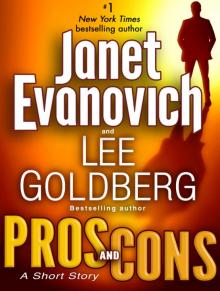 Pros and Cons
Pros and Cons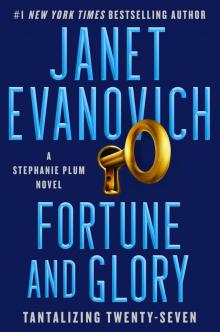 Fortune and Glory
Fortune and Glory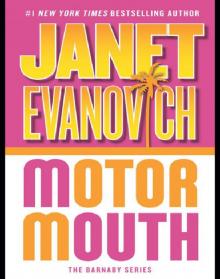 Motor Mouth: A Barnaby Novel
Motor Mouth: A Barnaby Novel Naughty Neighbor
Naughty Neighbor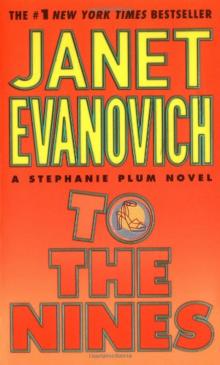 To the Nines
To the Nines The Husband List
The Husband List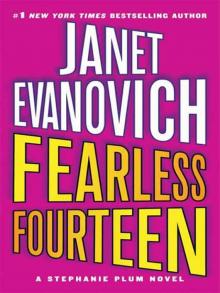 Fearless Fourteen: A Stephanie Plum Novel
Fearless Fourteen: A Stephanie Plum Novel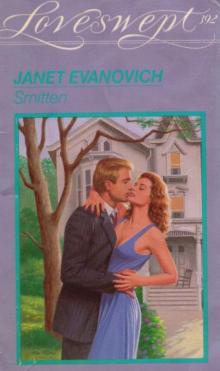 Smitten - LOVESWEPT - 392
Smitten - LOVESWEPT - 392 Plum 12 - Twelve Sharp
Plum 12 - Twelve Sharp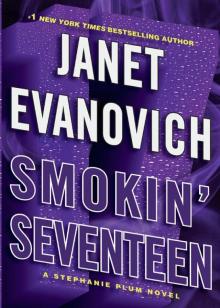 Smokin' Seventeen: A Stephanie Plum Novel (Stephanie Plum Novels)
Smokin' Seventeen: A Stephanie Plum Novel (Stephanie Plum Novels) Top Secret Twenty-One: A Stephanie Plum Novel
Top Secret Twenty-One: A Stephanie Plum Novel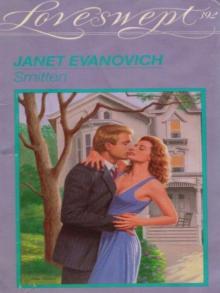 SMITTEN (Loveswept, No 392)
SMITTEN (Loveswept, No 392)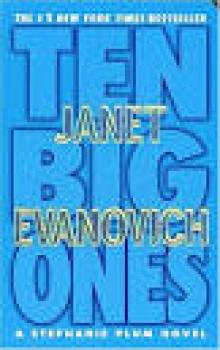 Plum 10 - Ten Big Ones
Plum 10 - Ten Big Ones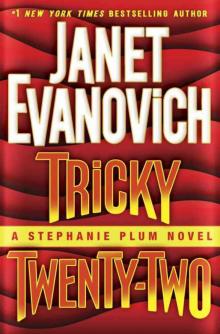 Tricky Twenty-Two: A Stephanie Plum Novel
Tricky Twenty-Two: A Stephanie Plum Novel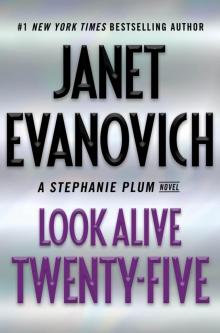 Look Alive Twenty-Five
Look Alive Twenty-Five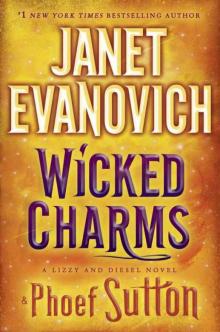 Wicked Charms: A Lizzy and Diesel Novel
Wicked Charms: A Lizzy and Diesel Novel Motor Mouth
Motor Mouth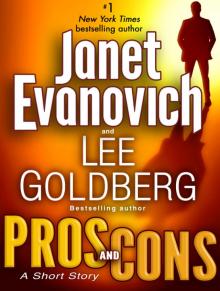 Pros and Cons: A Short Story
Pros and Cons: A Short Story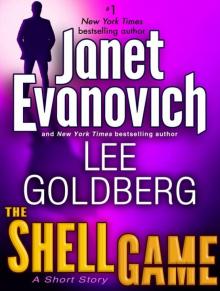 The Shell Game: A Fox and O'Hare Short Story (Kindle Single)
The Shell Game: A Fox and O'Hare Short Story (Kindle Single) Plum Boxed Set 1, Books 1-3 Stephanie Plum Novels)
Plum Boxed Set 1, Books 1-3 Stephanie Plum Novels) Between the Plums
Between the Plums